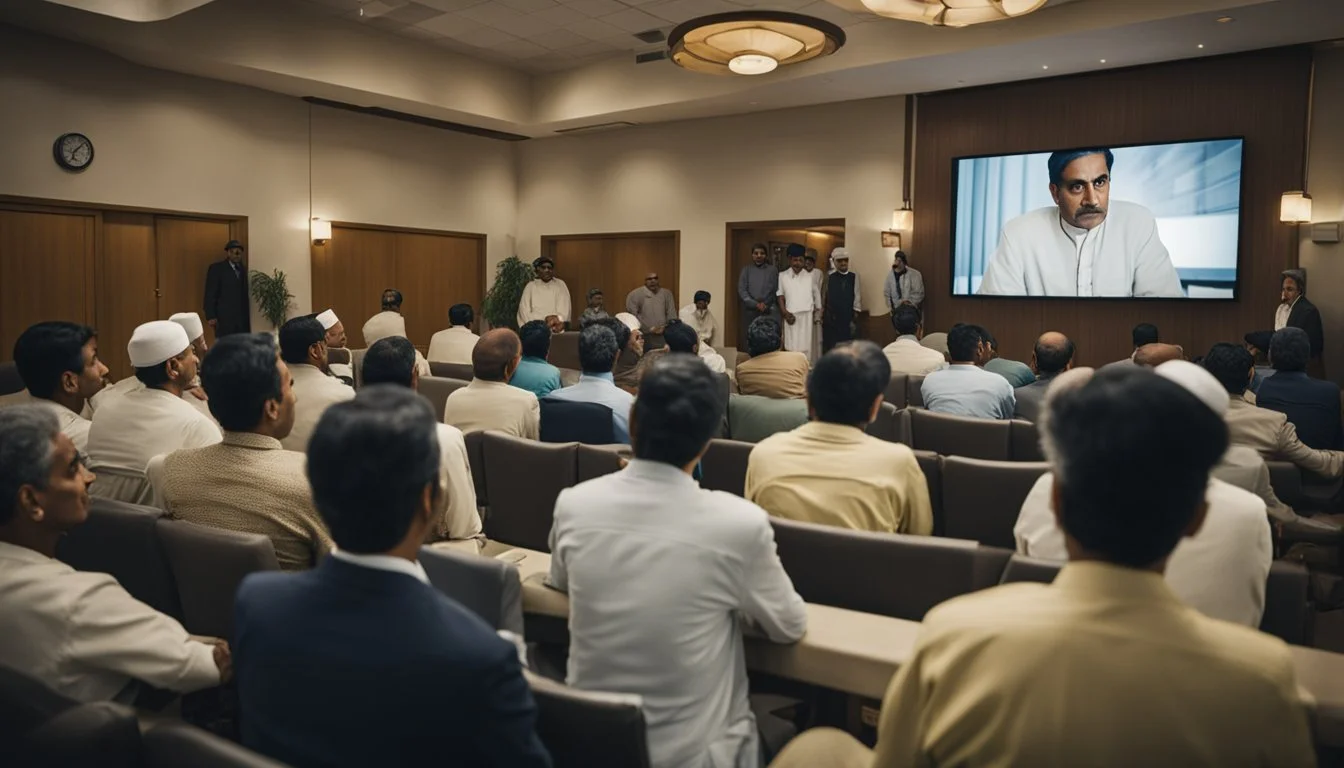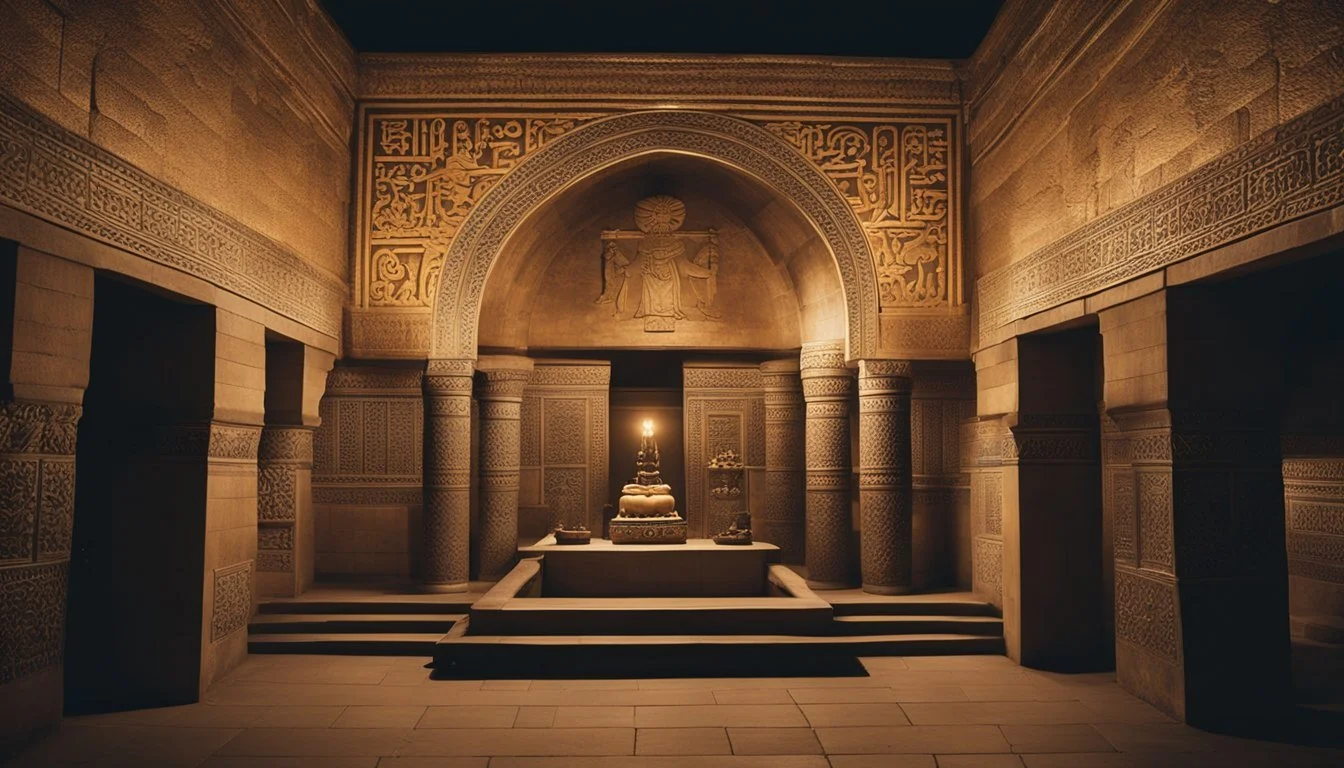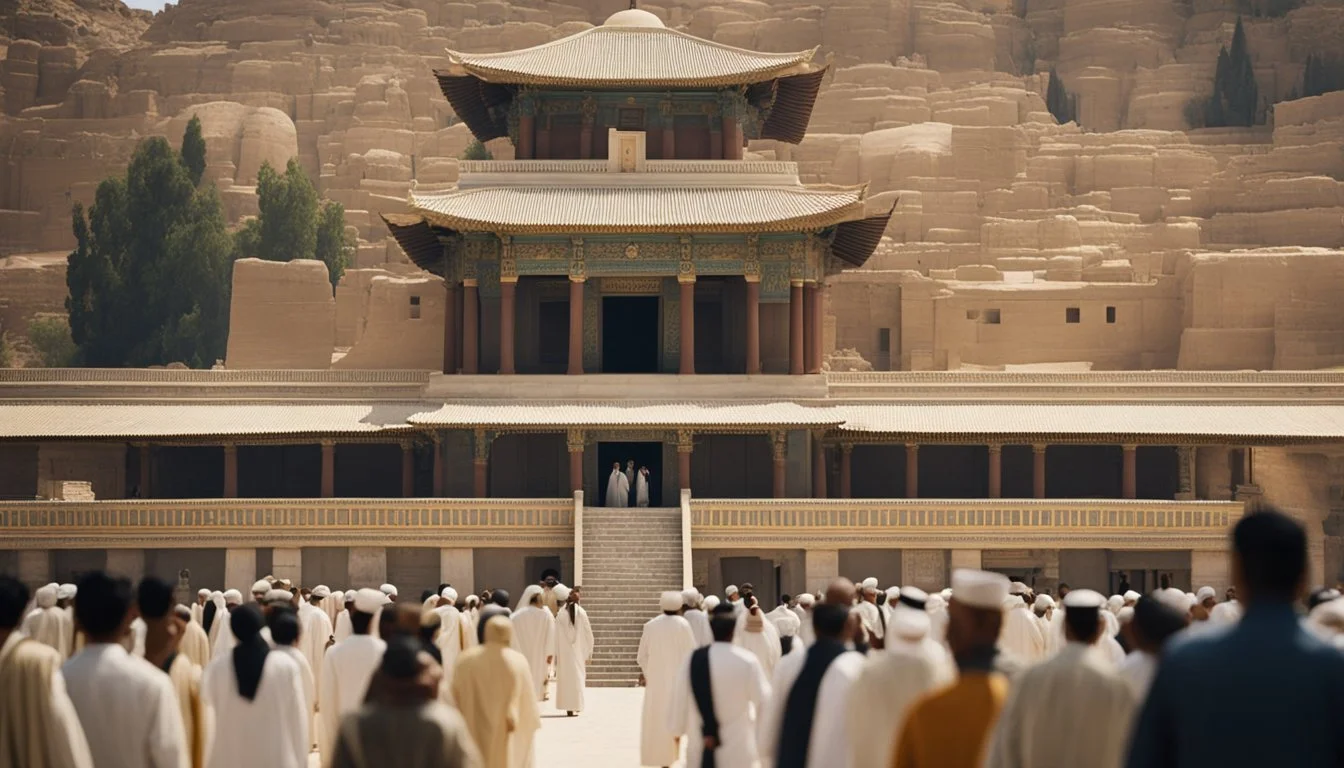5 True Crime Documentaries About Zoroastrian Communities You Need to Watch
The world of true crime documentaries often sheds light on various communities, revealing stories that captivate audiences with their intricacies and depth. While much attention has been given to various communities globally, one lesser-known focus is the lives and stories within Zoroastrian communities. These documentaries not only explore the criminal aspects but also provide insights into a community that has significantly contributed to global culture and history.
For those interested in both true crime and cultural exploration, documentaries about Zoroastrian communities offer a unique blend of intrigue and education. These films not only unravel the mysteries behind crimes but also educate viewers about Zoroastrianism, an ancient religion that has influenced many aspects of modern thought and society. Getting a glimpse into the lives of Zoroastrians through these documentaries provides a dual perspective of understanding crime within the context of cultural and religious traditions.
1) Mysteries of the Zoroastrian Murders
The Zoroastrian community has a rich history that has largely flown under the radar.
"Mysteries of the Zoroastrian Murders" (2023) uncovers a series of unsolved homicides within this ancient group.
Investigators dive into the cultural nuances and religious beliefs that may provide clues to these perplexing crimes.
The documentary navigates complex profiles of the victims and suspects, offering a rare glimpse into Zoroastrian life.
Law enforcement and experts talk about the challenges in solving these cases, given the community's unique traditions and secrecy.
There are interviews with family members of the victims, highlighting the emotional toll these murders have taken.
Viewers are taken through crime scenes, forensic analysis, and archival footage to piece together the puzzle.
The film aims to shed light on the difficulties of bringing justice to this often overlooked community, while delving into broader themes of faith, loyalty, and betrayal.
For more details on "Mysteries of the Zoroastrian Murders" (2023), visit IMDB.
2) Unveiling Secrets: Zoroastrian Scandals
Despite the small size of the Zoroastrian community, it has not been immune to scandal. These documentaries explore some of the darker chapters that have captured public attention.
The Bombay Diamond Scandal (2020)
This documentary delves into the story of a prominent Zoroastrian business family embroiled in a high-profile diamond smuggling ring. The scandal shook the foundations of trust within the community and led to significant legal battles. More on IMDb
Freddie's Hidden Truths (2017)
Through archival footage and interviews, this film explores the later years of Freddie Mercury, the famous singer of Zoroastrian heritage. It exposes the hidden struggles related to his identity and private life, aspects often overshadowed by his public persona. More on IMDb
The Parsis and Political Power (2019)
This documentary examines the influence of Zoroastrian community leaders in Indian politics. It reveals the murky world of political alliances, corruption, and the controversial legacy left behind. More on IMDb
Faith Under Fire (2021)
The focus here is on a controversial court case involving a Zoroastrian religious leader accused of misusing community funds. The case caused a deep divide among followers, questioning the financial ethics within religious institutions. More on IMDb
3) The Silent Witness: True Crime in Zoroastrianism
The documentary "The Silent Witness" explores unsettling events within Zoroastrian communities.
This film delves into historical and present-day cases, presenting an intricate tapestry of crimes from fraud and theft to more severe offenses. Zoroastrianism, predominantly practiced in regions like India and Iran, has a unique socio-cultural landscape.
The documentary details how community cohesion sometimes complicates justice. Witnesses and victims often face societal pressure to remain silent, fearing ostracism. This complicity within tight-knit communities is a recurring theme.
Highlighting authentic personal accounts, the film presents a balanced perspective. These testimonies reveal the harsh realities faced by individuals attempting to navigate justice systems that may not always be in their favor.
By providing deep insights into these communities, "The Silent Witness" underscores the necessity for transparency and justice regardless of societal boundaries. The documentary serves as an important reminder of the universal struggle against crime.
For more information on "The Silent Witness" (2022), visit IMDb.
4) Hidden Truths: Investigating Zoroastrian Crimes
True crime documentaries often illuminate the darker corners of society, and the lesser-known instances within Zoroastrian communities are no exception.
"Hidden Truths: Investigating Zoroastrian Crimes" explores cases that shed light on unusual, though significant, crimes involving members of Zoroastrian communities.
This investigation delves deep into specific cases that challenged both law enforcement and traditional community norms.
In one notable case, the film examines the mysterious disappearance of a respected Zoroastrian priest. This incident revealed underlying tensions and conflicts within the tight-knit community.
Another featured case covers financial fraud that rocked a small Zoroastrian business network, uncovering layers of deceit and betrayal.
By focusing on these incidents, the documentary also addresses how cultural and religious factors influence both the perpetrators and the victims.
These stories are meticulously researched, providing a comprehensive account that is both informative and engaging for the viewer.
External Link: Learn more about the Zoroastrian community on Wikipedia.
5) Cults Among Us: Zoroastrian Crime Stories
This documentary delves into the complexities of small Zoroastrian communities and the startling emergence of cult-like behaviors.
1. Shadows of the Sacred Flame (2018)
This documentary explores a secluded Zoroastrian sect that spiraled into a criminal enterprise. It investigates the motivations behind the actions of the group’s charismatic leader. Viewers witness interviews with former members and experts. More Information
2. Fire Keepers (2020)
Fire Keepers sheds light on a radical faction that veered into dangerous territory, leading to significant legal troubles. It features testimonies from law enforcement and community leaders. This film illustrates the fine line between faith and fanaticism. More Information
3. The Veiled Truth (2019)
This gripping tale uncovers the manipulation and deceit within a hidden Zoroastrian cult. The documentary highlights the psychological impact on its members. Experts provide insight into how such groups operate under the guise of religion. More Information
4. Beyond the Sacred Fire (2021)
A deep dive into a Zoroastrian community that fell under the influence of a charismatic yet dangerous leader. It examines the cultural and social factors that allowed the cult to thrive. Interviews with survivors add a personal touch. More Information
5. Light and Shadow (2022)
Light and Shadow presents the harrowing story of a splinter group exploiting religious beliefs for personal gain. It features intricate storytelling and factual details about the criminal activities involved. The documentary provides a balanced view from both former members and legal experts. More Information
Historical Context of Zoroastrian Communities
Zoroastrianism, one of the world's oldest religions, has profoundly influenced the spiritual landscape, especially within Iranian culture. These subsections explore the religion's origins and core beliefs, as well as its historical and modern geographical distribution.
Origins and Key Beliefs
Zoroastrianism originated in ancient Persia around 1500 BCE, founded by the prophet Zoroaster, also known as Zarathustra. The core belief centers around a dualistic cosmology of good and evil, represented by Ahura Mazda (the "Wise Lord") and Angra Mainyu (the "Destructive Spirit").
Ahura Mazda, the supreme god, embodies truth, light, and goodness. Fire worship plays a crucial role, symbolizing purity and the presence of Ahura Mazda. Sacred texts like the Avesta encompass liturgical works, hymns, and religious mandates. The religion emphasizes moral principles such as asha (truth and order) and asha vahishta (best truth).
Geographical Distribution
Historically, Zoroastrianism thrived in Persia (modern-day Iran) and later spread to regions such as India and Central Asia. The Islamic conquest of Persia in the 7th century significantly reduced Zoroastrian dominance, leading to persecution and migration.
In India, Zoroastrians are known as Parsis, a community that settled in Gujarat around the 8th century. Modern Zoroastrian communities are primarily found in Iran and India, but diaspora groups exist globally, including in the United States, Canada, and the UK. Estimates suggest a global Zoroastrian population of fewer than 200,000 today.
The preservation of rituals and customs remains a priority for these tight-knit communities, ensuring their cultural heritage endures despite decreasing numbers.
Influence of Zoroastrian Values in True Crime Narratives
The ancient Zoroastrian religion plays a notable role in shaping values, which can also be reflected in true crime narratives. This influence manifests in several ways, emphasizing morality, justice, and the battle between good and evil.
Zoroastrianism teaches the principle of asha, which stands for truth and order. True crime documentaries often highlight the investigation process, revealing how order is restored by uncovering the truth behind crimes.
The concept of dualism in Zoroastrianism refers to the ongoing struggle between the forces of good and evil. This theme is prevalent in true crime narratives, illustrating the constant battle between law enforcement and criminals.
Moral responsibility is another Zoroastrian value that influences true crime stories. Characters in these documentaries often grapple with ethical decisions, showcasing how their choices align with or diverge from moral righteousness.
Here is a brief list of Zoroastrian values frequently depicted in true crime narratives:
Asha (Truth and Order)
Dualism (Good vs. Evil)
Moral Responsibility
Moreover, the portrayal of consequence and retribution in crime documentaries resonates with the Zoroastrian belief in accountability for one’s actions.
These elements illustrate how Zoroastrian values enrich the storytelling in true crime documentaries, adding a layer of depth to the exploration of justice and morality. The infusion of such principles not only educates viewers but also provides a structured framework for understanding the complexities within criminal cases.
Cultural Insights from Zoroastrian True Crime Documentaries
These documentaries offer viewers unique insights into how true crime incidents affect Zoroastrian communities, shedding light on both community perceptions and the concepts of justice and morality within these contexts.
Impact on Community Perception
True crime documentaries focusing on Zoroastrian communities reveal the profound impact that crime can have on a small, closely-knit group. Such films highlight how crimes are not only a breach of law but also a source of community shame. The communal response to crime often includes collective reflection and action to maintain social harmony.
For example, when a member commits a crime, the community may experience collective guilt. This can lead to initiatives aimed at reinforcing ethical behaviors and restoring community pride. These insights are critical for understanding how communal identities are preserved and how reputation management is integral to such small communities.
Key Points:
Communal response to crime
Collective actions to maintain social harmony
Community-driven ethical initiatives
Reflections on Justice and Morality
Zoroastrian true crime documentaries often explore the community's unique perspectives on justice and morality. The Zoroastrian faith places a significant emphasis on moral integrity, and this is evident in how justice is perceived and pursued in these films. They delve into how religious beliefs influence legal proceedings and community sanctions.
The Zoroastrian approach to justice typically incorporates restorative practices, emphasizing the need to rehabilitate offenders and restore the balance within the community. This faith-driven approach contrasts with more punitive systems seen elsewhere, offering a perspective rooted in centuries-old traditions and ethical codes.
Key Points:
Influence of Zoroastrian faith on legal proceedings
Emphasis on restorative justice
Ethical codes guiding community sanctions
These insights offer a valuable understanding of how Zoroastrian communities navigate the complex interplay between crime, justice, and morality.









